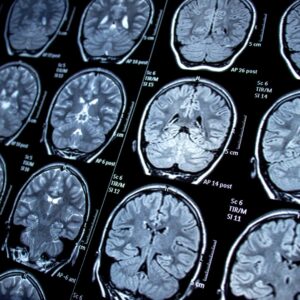Understanding Neurological Disorders
Understanding Neurological Disorders
As the control center of the body, the brain and nervous system are responsible for coordinating all of our thoughts, emotions, and movements. However, when something goes wrong in this complex network of cells and tissues, it can lead to a wide range of neurological disorders. Our neurologist in Bridgeport at Neurological Specialists would like to explore what neurological disorders are, the different types, and how they can be managed.
What Are Neurological Disorders?
Neurological disorders affect the nervous system, including the brain, spinal cord, and various nerves throughout the body. These disorders can significantly impact a person’s ability to perform everyday tasks, such as speaking, walking, or even breathing. Various factors, including genetics, infections, trauma, and environmental toxins, can cause neurological disorders. There are several different types of neurological disorders treated by our neurologist in Bridgeport, each with their unique set of symptoms and causes. Some of the most common types of neurological disorders include:
- Alzheimer’s Disease: Alzheimer’s disease is a prevalent and accelerative brain disorder that affects memory, thinking, and behavior. Alzheimer’s is the most common cause of dementia, a group of symptoms that includes memory loss, confusion, and changes in mood and personality.
- Parkinson’s Disease: Parkinson’s disease is a degenerative disorder that affects movement. This disorder is caused by the loss of dopamine-producing cells in the brain, leading to tremors, stiffness, and difficulty with balance and coordination.
- Multiple Sclerosis: Multiple sclerosis, or MS, is a chronic and debilitating autoimmune disorder that affects the central nervous system. It causes damage to the myelin sheath, a protective covering that surrounds nerve fibers, leading to symptoms such as fatigue, weakness, and problems with vision and coordination.
- Epilepsy: Epilepsy is a prevalent neurological disorder that causes seizures ranging from mild to severe. Seizures can be caused by various factors, including genetic mutations, brain injuries, and infections.
- Migraines: Migraines are a prevalent type of headache that can cause severe pain, sensitivity to light and sound, and nausea. They are caused by changes in the brain and can be triggered by various factors, including stress, certain foods, and hormonal changes.
Causes of Neurological Disorders
Neurological disorders can be caused by a variety of factors, including:
- Genetics: Many neurological disorders have a genetic component, meaning they are passed down from generation to generation.
- Infections: Some neurological disorders are caused by infections, such as meningitis or encephalitis.
- Trauma: Traumatic brain or spinal cord injuries can lead to neurological disorders, such as a concussion or spinal cord injury.
- Environmental toxins: Exposure to certain toxins, such as lead or mercury, can cause neurological damage.
- Autoimmune disorders: Some neurological disorders are caused by autoimmune disorders, in which the immune system attacks the body’s own cells and tissues.
Contact our Neurologist in Bridgeport
At Neurological Specialists, our neurologist in Bridgeport offers a variety of diagnostic tests and services to help people manage several neurological disorders. Be sure to contact us today to learn more and request an appointment!
